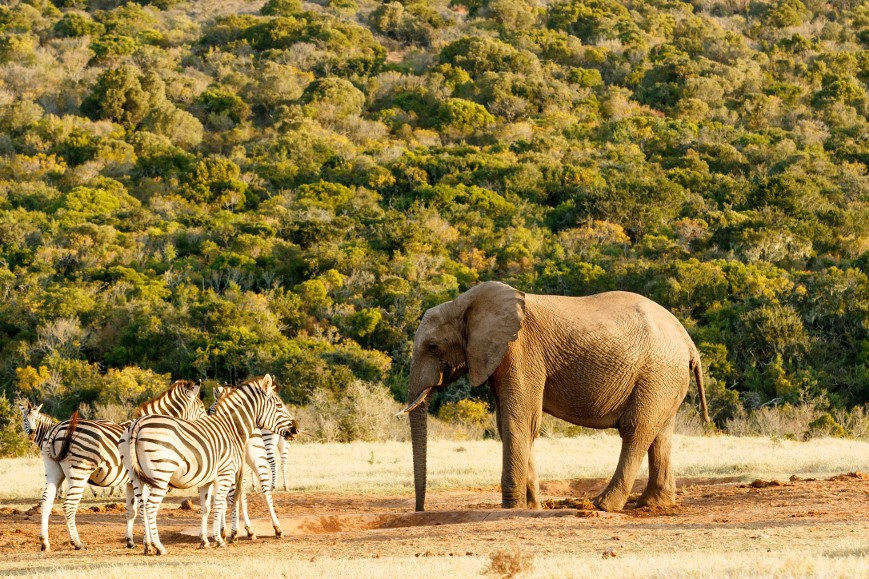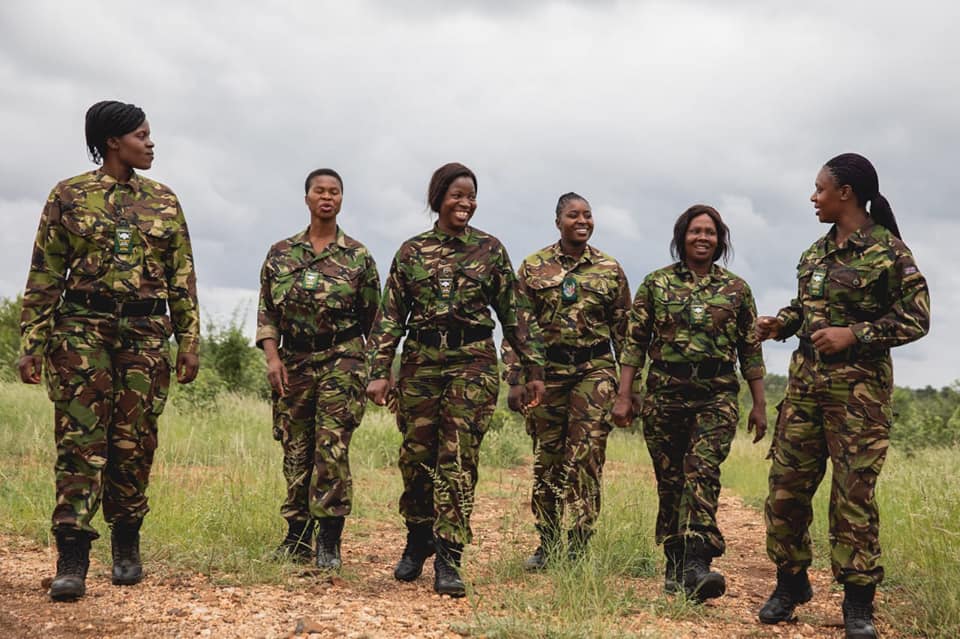Checking in With… The Black Mambas
The Brave Women in Africa That Are Taking on Poachers—and Winning. Fox Communications sits down with the Black Mambas.
The all-female Black Mambas anti-poaching unit carry no weapons; they protect South Africa’s most precious wildlife with their lives. The group guards and patrols the Balule Private Game Reserve, a protected wildlife area spanning nearly 140,000 acres on the western border of South Africa’s world-famous Kruger National Park. Fox Communications sits down with The Black Mambas, about their mission to save South Africa’s endangered rhinos and elephants as well as promoting conservation on a global scale. Many first took note of this award-winning group when they were one of just 17 accounts that the Duke and Duchess of Sussex followed on their official Instagram account.
Q: Can you tell us more about what you do?
The Black Mambas are first majority female anti-poaching unit in the world and we have significantly reduced incidents of snaring and poaching by as much as 76 percent. Each month, every Black Mamba spends 21 days straight patrolling Balule by foot or Land Rover —four hours at dawn and five hours at dusk. We are looking for snares, human tracks, sounds of gunshots, and other suspicious activity. We don’t carry weapons but instead rely on our training and teamwork to get the job done. We don’t arrest people, but we do call in backup, or trained special forces, to seize them. And that’s just the humans. Each and every day we have encounters with lions, leopards, rhinos, elephants and many other animals which could be seen as life threatening animals. These are the animals we encounter on a daily basis. As for that, every animal is different, and the feeling is new every time; that is where the training comes to play.
Q: How did the group come about?
The group was founded by Transfrontier Africa and initially it was just six of us. We were part of ECO Club which used to come to our schools and teach us about environment and nature. The training process is vigorous, with three months of required training for entry that includes physical exercise, like running around three miles daily, and classroom work, such as learning surveillance practices, compliance techniques, and how to use walkie-talkies. The last month is the most challenging with a focus on survival tactics in the bush, including building shelter and functioning without food or water. I believe that this extensive training is part of why, in four years, there have been no casualties on the job, despite the fact that we are often in serious danger.
Q: The training sounds so rigorous, and it’s not right for everyone, how do you know who’s right to join The Black Mambas, what sort of characteristics do you look for in recruiting?
Anyone can join, but only if you don’t have criminal record and you have never been involved with poachers. We look for those who are fit visibly can work as team. But most importantly the people we look for are passionate about this job and the animals we are saving.
Q: You are out in the bush without any weapons – what’s the idea behind this and how do you stay safe?
We don’t carry guns because we are in the reserve only to detect, and to raise awareness. We are the eyes and ears of the reserve. We believe firmly that if we carry guns and shoot poachers and they will shoot us too, we don’t want to see orphans and widows in our communities. Also bear in mind that some of us we have kids at home, when we go home, we want to tell them stories about animals, and not stories about killing people. Also, we want our communities to know that they don’t have gun toting enemies in their community. We go on patrol with our hand held, hand cuffs, radio and a smart phone which has our own App in, (called Cmore), and we have people who stay in the office checking us hourly and tracking us on Cmore.

Q: How is tourism impacting your efforts? Have you seen a positive impact from the rise of sustainable tourism on the local communities and through conservation programs?
Tourism has both great positive and very negative impact on our efforts. Some people visiting our parks have their own hidden agenda which is to destroy. At the same time the rise of tourism means there are many eyes on ground helping us monitor the situation. Also is must be said that the rise of tourism does have positive impact on the communities in terms of jobs and some environmental education programmes.
Q: What are the biggest day to day challenges you face?
Believe it or not, it’s not lions. Walking under the burning sun every day is by far the biggest challenge. It can be uncomfortably hot and humid in the summer. Peak temperatures frequently reach well over 40°C/104°F and bear in mind that we are outside all day without much shade.
Q: What could businesses do to engage more with local environmental and sustainability groups?
We think it would be beneficial if they started environmental programmes to help broaden the importance of conservation to the people, most importantly to the younger generation who will lead the way in future. We need people to understand what’s happening to our wildlife and create passion for protecting it.
Q: What is your end goal?
We want to see the project expand, so, we can cover many reserves to save and protect the indigenous wildlife across the continent of Africa. That is our passion and that is why we get up every day and do what we do.


